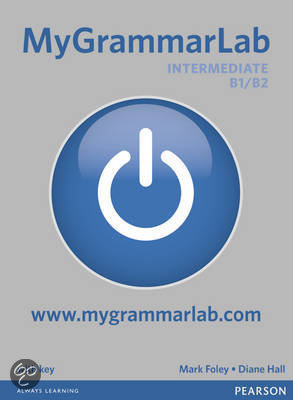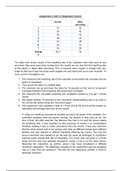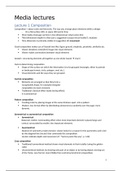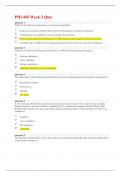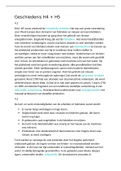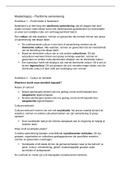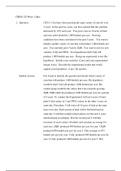GRAMMAR
Module 9: Modal verbs
Ability and possibility: can could, be able to
Modal verbs are used with another verb to indicate that an action is possible, necessary, or certain. They can
also be used to ask permission or give advice.
Positive Sentences I can swim.
You must leave.
She should go.
Negative Sentences I cannot (can't) dance.
He must not (mustn't) stop.
We could not (couldn't) leave
Questions Can you speak French? (No, I can't)
Should they leave? (Yes, they should.)
What can you do?
Where should we go?
1. Modal verbs (can, could, may, mght, should, must, ould, will and shall):
- Infinitive without "to":
Incorrect: You can to use it anywhere.
Correct: You can use it anywhere.
- Same form for all subjects:
Incorrect: My brother cans swim.
Correct: My brother can swim.
- Negatives with "not" or "n't":
Incorrect: I don't can speak Japanese.
Correct: I can't speak Japanese.
- Questions without "do/does/did":
Incorrect: Does she can play tennis?
Correct: Can she play tennis?
- No infinitive or -ing forms:
Incorrect: I want to can play the guitar.
Correct: I want to be able to play the guitar.
Incorrect: I love can stay up late
Correct: I love being able to stay up late.
- No participle (-ed, -ing) forms:
Continuous/Perfect tenses:
They can't have used it yet.
Passive Form of Modals
- Modal verb + form of "be" + past participle:
Active: Members can use this car park.
Passive: This car park can be used by members.
, 2. Can for Present Ability and Possibility
- We use "can" or "be able to" to indicate that it is possible to do something or that
someone/something has the ability to do something.
You can use this phone anywhere in the world.
Can you speak Japanese?
- Use "be able to" when something is surprising or requires effort
It's amazing—some animals are able to sleep standing up!
Because of her illness, Alice isn't able to see visitors.
- Use "can/can't" with verbs of the senses (e.g., see, hear, smell) and some verbs of thinking (e.g.,
believe, forget, remember) for actions happening now:
I can smell something bad.
Can you remember her name?
I can't believe this computer's so slow!
3. Future Ability and Possibility
To talk about what we can do in the future:
- Be able to for certain situations:
After you receive your password, you'll be able to visit our new website.
I won't be able to eat for three hours after the operation.
- Can for future personal arrangements:
The dentist can see you on Friday.
Can you meet me at the airport on Tuesday?
- Could for possible but unlikely situations:
We could give up our jobs and live on a desert island.
I'm so angry I could scream.
- Could or would be able to for conditional situations:
If you had a credit card, you could buy it on the Internet.
If you learned to sing, you'd be able to join the music group.
4. Past Ability and Possibility
- To talk about past ability and possibility, we use "could/couldn't" or "was/were able to."
Before I got this job I couldn't afford a car.
Could the first cameras take colour photos?
SPECIALS:
- Use "was/were able to" for a positive statement about a single event in the past:
I was able to transfer my old number.
- For negative statements, use "couldn't" or "wasn't/weren't able to"
We weren't able to get any cheap flights.
We couldn't get any cheap flights.
- For particularly difficult tasks, use "managed to":
I washed it twice but didn't manage to get rid of that stain on your shirt.
- We often use managed to with expressions like: in the end, eventually, finally
It took a while, but in the end, we managed to find some cheap flights on the Internet.
, 5. General Truths
- Use "can" to indicate general possibilities:
It can be very cold in New York in January.
Life can be very hard for people on low incomes.
Bad weather can cause flight delays at any time.
- We use ‘could’ to talk about general truths about the past
In the days of sailing ships it could take many months to travel across the Atlantic.
Making a Guess (1): may, might, could, must, can’t, should
1. Making a Guess About a Present Situation
- No modal verbs are used when completely certain:
The camera isn't working because the battery hasn't been charged.
- Must or can't are used when certain about a guess (opposite must is can’t and NOT musn’t)
It must be the battery!
It can't be that. I recharged it yesterday!
Lucy's just bought a new car - she must be earning plenty of money.
Is that Marina at the door? It can't be her; she's on holiday.
- May (not), might (not), or could are used when less certain about our guess:
It might be the memory card. Perhaps it's full.
There could be life on other planets.
The manager may be in a meeting. I'll check for you.
Steve might not be living at home anymore.
- May not or might not (not could not) when we are not sure about our guess:
This small shop might not have batteries.
- Asking for a guess: Use Could or Do you think?:
Could it be the battery?
Do you think Jerry's at home today?
2. Making a Guess About the Future
- Use may (not), might (not), or could (NOT couldn't):
If we wait for a few days, the prices might be cheaper.
I could get a part-time job next summer.
The tickets may not arrive in time.
3. Expectations
- Use should or shouldn't when expecting something to be true/correct:
You can phone Henry at work. He should be in the office by now.
, Making a Guess (2): must, might, could, should, have
1. Past Forms
Perfect Form:
- Modal verb + have + past participle:
Positive: I might have seen him.
Negative: I cannot have lost it.
Questions: Could you have known?
Continuous Form
- Modal verb + have + been + -ing:
He must have been driving too fast.
2. Making a Guess About a Past Situation
- Certain that our guess is correct: Use must, can't, or couldn't + have + past participle:
Everything's pink! You must have put something red in the machine.
Lester couldn't have been driving the car.
- Less certainly about our guess: Use may (not), might (not), or could + have + past participle
'Where are the keys?' 'I may have left them in the car!'
'Why hasn't Ali arrived yet?' 'Could he have forgotten the date?'
- Uncairtainly: Use mightn't have + past participle (NOT couldn't have):
I'm not sure; I mightn't have passed the exam.
3. Expectations About the Past
Should + Have + Past Participle
- Express expectations about past events:
That letter should have arrived by now.
We should have had our exam results last week.
- Use this form for planned actions that didn’t happend
We should have had our exam results last week.
I should have gone swimming last Friday.
- Similar meanings can be expressed with was/were meant to or was/were supposed to:
The plane was meant to leave at six.
I was supposed to send her my email address.
Module 9: Modal verbs
Ability and possibility: can could, be able to
Modal verbs are used with another verb to indicate that an action is possible, necessary, or certain. They can
also be used to ask permission or give advice.
Positive Sentences I can swim.
You must leave.
She should go.
Negative Sentences I cannot (can't) dance.
He must not (mustn't) stop.
We could not (couldn't) leave
Questions Can you speak French? (No, I can't)
Should they leave? (Yes, they should.)
What can you do?
Where should we go?
1. Modal verbs (can, could, may, mght, should, must, ould, will and shall):
- Infinitive without "to":
Incorrect: You can to use it anywhere.
Correct: You can use it anywhere.
- Same form for all subjects:
Incorrect: My brother cans swim.
Correct: My brother can swim.
- Negatives with "not" or "n't":
Incorrect: I don't can speak Japanese.
Correct: I can't speak Japanese.
- Questions without "do/does/did":
Incorrect: Does she can play tennis?
Correct: Can she play tennis?
- No infinitive or -ing forms:
Incorrect: I want to can play the guitar.
Correct: I want to be able to play the guitar.
Incorrect: I love can stay up late
Correct: I love being able to stay up late.
- No participle (-ed, -ing) forms:
Continuous/Perfect tenses:
They can't have used it yet.
Passive Form of Modals
- Modal verb + form of "be" + past participle:
Active: Members can use this car park.
Passive: This car park can be used by members.
, 2. Can for Present Ability and Possibility
- We use "can" or "be able to" to indicate that it is possible to do something or that
someone/something has the ability to do something.
You can use this phone anywhere in the world.
Can you speak Japanese?
- Use "be able to" when something is surprising or requires effort
It's amazing—some animals are able to sleep standing up!
Because of her illness, Alice isn't able to see visitors.
- Use "can/can't" with verbs of the senses (e.g., see, hear, smell) and some verbs of thinking (e.g.,
believe, forget, remember) for actions happening now:
I can smell something bad.
Can you remember her name?
I can't believe this computer's so slow!
3. Future Ability and Possibility
To talk about what we can do in the future:
- Be able to for certain situations:
After you receive your password, you'll be able to visit our new website.
I won't be able to eat for three hours after the operation.
- Can for future personal arrangements:
The dentist can see you on Friday.
Can you meet me at the airport on Tuesday?
- Could for possible but unlikely situations:
We could give up our jobs and live on a desert island.
I'm so angry I could scream.
- Could or would be able to for conditional situations:
If you had a credit card, you could buy it on the Internet.
If you learned to sing, you'd be able to join the music group.
4. Past Ability and Possibility
- To talk about past ability and possibility, we use "could/couldn't" or "was/were able to."
Before I got this job I couldn't afford a car.
Could the first cameras take colour photos?
SPECIALS:
- Use "was/were able to" for a positive statement about a single event in the past:
I was able to transfer my old number.
- For negative statements, use "couldn't" or "wasn't/weren't able to"
We weren't able to get any cheap flights.
We couldn't get any cheap flights.
- For particularly difficult tasks, use "managed to":
I washed it twice but didn't manage to get rid of that stain on your shirt.
- We often use managed to with expressions like: in the end, eventually, finally
It took a while, but in the end, we managed to find some cheap flights on the Internet.
, 5. General Truths
- Use "can" to indicate general possibilities:
It can be very cold in New York in January.
Life can be very hard for people on low incomes.
Bad weather can cause flight delays at any time.
- We use ‘could’ to talk about general truths about the past
In the days of sailing ships it could take many months to travel across the Atlantic.
Making a Guess (1): may, might, could, must, can’t, should
1. Making a Guess About a Present Situation
- No modal verbs are used when completely certain:
The camera isn't working because the battery hasn't been charged.
- Must or can't are used when certain about a guess (opposite must is can’t and NOT musn’t)
It must be the battery!
It can't be that. I recharged it yesterday!
Lucy's just bought a new car - she must be earning plenty of money.
Is that Marina at the door? It can't be her; she's on holiday.
- May (not), might (not), or could are used when less certain about our guess:
It might be the memory card. Perhaps it's full.
There could be life on other planets.
The manager may be in a meeting. I'll check for you.
Steve might not be living at home anymore.
- May not or might not (not could not) when we are not sure about our guess:
This small shop might not have batteries.
- Asking for a guess: Use Could or Do you think?:
Could it be the battery?
Do you think Jerry's at home today?
2. Making a Guess About the Future
- Use may (not), might (not), or could (NOT couldn't):
If we wait for a few days, the prices might be cheaper.
I could get a part-time job next summer.
The tickets may not arrive in time.
3. Expectations
- Use should or shouldn't when expecting something to be true/correct:
You can phone Henry at work. He should be in the office by now.
, Making a Guess (2): must, might, could, should, have
1. Past Forms
Perfect Form:
- Modal verb + have + past participle:
Positive: I might have seen him.
Negative: I cannot have lost it.
Questions: Could you have known?
Continuous Form
- Modal verb + have + been + -ing:
He must have been driving too fast.
2. Making a Guess About a Past Situation
- Certain that our guess is correct: Use must, can't, or couldn't + have + past participle:
Everything's pink! You must have put something red in the machine.
Lester couldn't have been driving the car.
- Less certainly about our guess: Use may (not), might (not), or could + have + past participle
'Where are the keys?' 'I may have left them in the car!'
'Why hasn't Ali arrived yet?' 'Could he have forgotten the date?'
- Uncairtainly: Use mightn't have + past participle (NOT couldn't have):
I'm not sure; I mightn't have passed the exam.
3. Expectations About the Past
Should + Have + Past Participle
- Express expectations about past events:
That letter should have arrived by now.
We should have had our exam results last week.
- Use this form for planned actions that didn’t happend
We should have had our exam results last week.
I should have gone swimming last Friday.
- Similar meanings can be expressed with was/were meant to or was/were supposed to:
The plane was meant to leave at six.
I was supposed to send her my email address.

